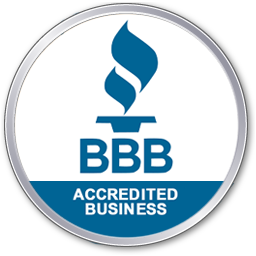Sometimes it can be challenging to look at the world and face the facts; there are thousands of contaminated sites everywhere you look. This makes environmental cleanup an almost impossible task.
With waste disposal, illegal dumping, natural disasters, and other activities causing land contamination, it’s more important than ever to use a cost-effective, eco-friendly cleanup solution.
That’s where bioremediation comes in. It’s an innovative approach to environmental cleanup that uses natural processes to reduce the impact of pollutants.
One of the most significant advantages of bioremediation is that it can help restore ecosystems damaged by humans over time. Other benefits of bioremediation include:
- Reduction in the risk of contamination
- Improved hazardous waste cleanup efficiency
- Decrease in costs associated with traditional remediation methods
- Reducing energy consumption and emissions
- Potentially increasing soil quality
In short, bioremediation is one of the most effective ways to address environmental pollution. And it can accomplish this while minimizing damage to our planet’s fragile ecosystems.
How Bioremediation Works
Bioremediation is a process that uses natural organisms to break down pollutants. These organisms can be either naturally occurring, such as bacteria or fungi, or genetically engineered.
Bioremediation works by introducing these organisms into contaminated areas. When introduced, they will begin breaking down harmful pollutants into harmless compounds.
For example, some forms of bioremediation can be used to remove metals and sediments from water sources. And then, there are other forms used on certain toxic and persistent chemicals.
But bioremediation isn’t a cure-all for environmental cleanup. Some of the biggest blockers are high molecular weight PAHs and highly chlorinated pollutants.
This is because they don’t respond well to microbial degradation. The second blocker is that some chemicals may produce more toxic compounds when exposed to bioremediation.
Bioremediation Categories
There are two main types of bioremediation: in situ and ex situ.
In Situ Bioremediation
In situ bioremediation is implemented directly at the source of contamination. This type of bioremediation has proved to be an efficient method for treating soil and groundwater pollution.
Additionally, in situ bioremediation eliminates the need for costly labor-intensive excavations found with other forms of remediation.
Nevertheless, the success rate and efficacy of this process vary based on a variety of factors. These factors include:
- Pollutant type
- Site characteristics
- Pollutant concentration and distribution
- Presence of other pollutants
- Temperature
- pH balance
- Moisture levels
- Nutrient supply
- Microbial community presence
You can enhance in situ bioremediation techniques by manipulating the aeration, adding nutrients, and moisture control. Enhanced in situ is a viable solution to lackluster biodegradation rates.
However, in intrinsic in situ bioremediation, this step is bypassed.
This is because only natural processes are allowed without any amendment additions and human intervention. Some examples of in situ bioremediation includes:
- Enhanced biodegradation
- Bioslurping
- Natural attenuation
- Phytoremediation
- Bioventing
Ex Situ Bioremediation
Ex situ bioremediation is an effective approach to contamination cleanup. This is because ex situ remediation involves removing the pollutants from the contaminated site and treating them in a controlled environment.
By excavating or pumping away the pollutants, this method provides reliable results with minimal disruption.
The ex situ process purifies a wide array of hydrocarbons that help decontaminate the affected area. This allows the contaminated soil to be excavated and treated using indigenous microorganisms.
Some examples of ex situ bioremediation include:
- Slurry reactors
- Landfarming
- Composting
- Soil biopiles
Site Types
Bioremediation can be used to clean up a wide range of contaminated sites, including soils and water sources. Depending on the site itself, there will be water, soil, or waste bioremediation implemented. A few sites commonly associated with bioremediation include:
- Petroleum
- Industrial
- Landfills
- Farms
- Lumber processing facilities
- Onsite sanitation
Benefits of Bioremediation for Portland Cleanup Sites
Eco-Friendly
If you discharge polluted water into the Waters of the United States, you will need a National Pollutant Discharge Elimination System (NPDES) Permit under the Clean Water Act.
However, you will not require a permit if you discharge the water into a municipal sanitary sewer system. But it’s always best to double-check with the permitting authority because the permits change every five years.
Bioremediation is a great way to clean up Portland’s environmental sites—especially for those looking to obtain an NPDES Permit. Not only is it eco-friendly, but it also causes minimal disruption and requires less energy and resources.
In most cases, authorized states will issue NPDES permits, but a select few and several jurisdictions employ the EPA as the sole permitting authority. The three states include Massachusetts, New Hampshire, and New Mexico.
At its core, bioremediation benefits human health and overall environmental systems. By promoting bioremediation, not only can we clean up our water sources and enrich the soil, but also significantly enhance air quality on a global scale.
Cost-Effective
If the site you’re responsible for requires some remediation, you already know it won’t be cheap. Luckily, bioremediation is an extremely cost-effective solution.
Compared to remediation, bioremediation is almost always going to be the more cost-effective option—the difference being nearly $70 per cubic meter.
Bioremediation is also a cost-effective alternative because it reduces the need for costly machinery and labor. The difference can be significant when compared to traditional environmental cleanup methods.
By harnessing natural organisms, bioremediation can achieve similar results with significantly lower costs. However, it may take a little longer to achieve results.
At the end of the day, the fewer resources needed, the lower the price tag. This is why bioremediation can be a great option when it comes to large-scale environmental remediation projects.
For instance, with the right technology and expertise, an oil spill cleanup could be completed within days or weeks—compared to months or even years with other remediation methods.
This makes bioremediation a desirable solution for those looking to keep costs down.
Scalable
There are no two ways about it; bioremediation is highly scalable and makes sense regarding costs. It’s the ideal solution for a wide range of environmental remediation needs. Regardless of project size or contamination present, bioremediation can accommodate your needs.
It’s perfect for everything from an oil spill on a small beach or decontaminating an industrial site.
For example, sewage treatment plants that handle billions of gallons of water utilize bioremediation day in and day out. If that doesn’t prove its effectiveness, what will?
Final Thoughts
Bioremediation is an eco-friendly and cost-effective way to remediate contaminated sites. By using naturally occurring microorganisms, we can effectively clean up contamination without the need for expensive machinery or labor.
Additionally, it’s highly scalable and can accommodate even the largest of environmental cleanup projects. Overall, the advantages of bioremediation make it an attractive option. With these advantages, bioremediation can be a powerful force for creating cleaner and healthier environments around the world.




